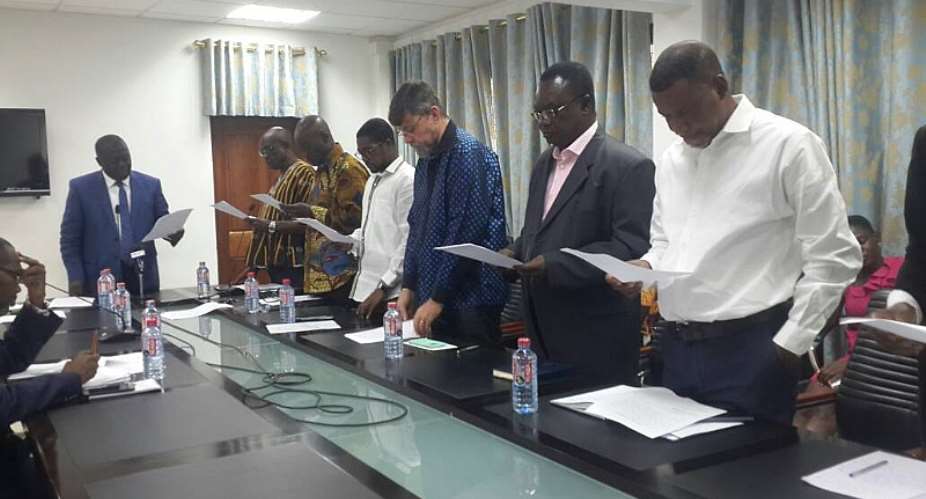Soil samples taken from some mined areas in the Eastern Region have shown that the mercury content is two times higher than the World Health Organisation’s approved measurement.
According to the lead researcher working on the Kyebi reclamation sites, Johann Zietsman, the samples they started gathering in March 2017, measure as high as two parts per a billion meter, (2ppb).
The government in November 2017 launched the Kyebi Reclamation Project to reclaim 18 illegal mining sites in Kyebi in the Eastern Region.

The exercise, which according to the Lands and Natural Resources Minister, John Peter Amewu, is in two phases, will be replicated in other illegal mining sites across the country.
The lead researcher for the project at the inauguration of a board to oversee the project in Accra on January, 22, 2018, said the mercury content is very alarming.
He explained that, “My team and I have been on the ground since March last year [2017]. We were given eighteen blocs and these are quite huge blocs. We have surveyed these areas to look at the mercury contamination and also the topographic challenges of the area. We have been on the ground for many months; we have done soil sampling of three different areas. It's a very large area, per the map given to us by the traditional Council.”
“It goes all the way from Afiyaase area, all the way to the main Kyebi-Kumasi road. It goes over 10 kilometres in one direction and probably another 8 kilometres in the other direction. As we speak now, our teams are going back. We are working on the World Health Organisation specs which is below 2ppm thus two parts per million of mercury contamination.”
Mr. Zietsman noted that, “We have discovered some disturbing areas which luckily for us are isolated. It's actually as high as 2ppb thus two parts per billion of mercury contamination. We have even discovered some areas which have got even 4ppb, thus 4 parts per billion, that means; it is over 2 thousand times higher than what is allowed by the World Health Organisation Regulations.”
Environment Ministry to ban mercury use in mining
The Minister for Environment, Science, Technology and Innovation, Professor Frimpong Boateng, in December 2017, revealed government's intentions to drastically reduce the use of mercury in mining activities in the country as it poses serious health hazards.
As a result, Ghana has signed an agreement with the MINAMATA Convention.
The Convention seeks to ban the use of mercury in artisanal mining to reduce health risks.
In an interview with Citi Business News, Professor Frimpong Boateng also indicated that plans are advanced to wipe out mercury usage and its health implications in Ghana.
The move is in line with the Minamata Convention, which among other things seeks an end to the use of harmful chemicals such as mercury due to its devastating record on the life of people in Minamata in Japan.





 We’ll no longer tolerate your empty, unwarranted attacks – TUC blasts Prof Adei
We’ll no longer tolerate your empty, unwarranted attacks – TUC blasts Prof Adei
 Bawumia donates GHc200,000 to support Madina fire victims
Bawumia donates GHc200,000 to support Madina fire victims
 IMF to disburse US$360million third tranche to Ghana without creditors MoU
IMF to disburse US$360million third tranche to Ghana without creditors MoU
 Truck owner share insights into train collision incident
Truck owner share insights into train collision incident
 Paramount chief of Bassare Traditional Area passes on
Paramount chief of Bassare Traditional Area passes on
 Two teachers in court over alleged illegal possession of BECE papers
Two teachers in court over alleged illegal possession of BECE papers
 Sunyani: Victim allegedly shot by traditional warriors appeals for justice
Sunyani: Victim allegedly shot by traditional warriors appeals for justice
 Mahama vows to scrap teacher licensure exams, review Free SHS policy
Mahama vows to scrap teacher licensure exams, review Free SHS policy
 Government will replace burnt Madina shops with a new three-story, 120-store fac...
Government will replace burnt Madina shops with a new three-story, 120-store fac...
